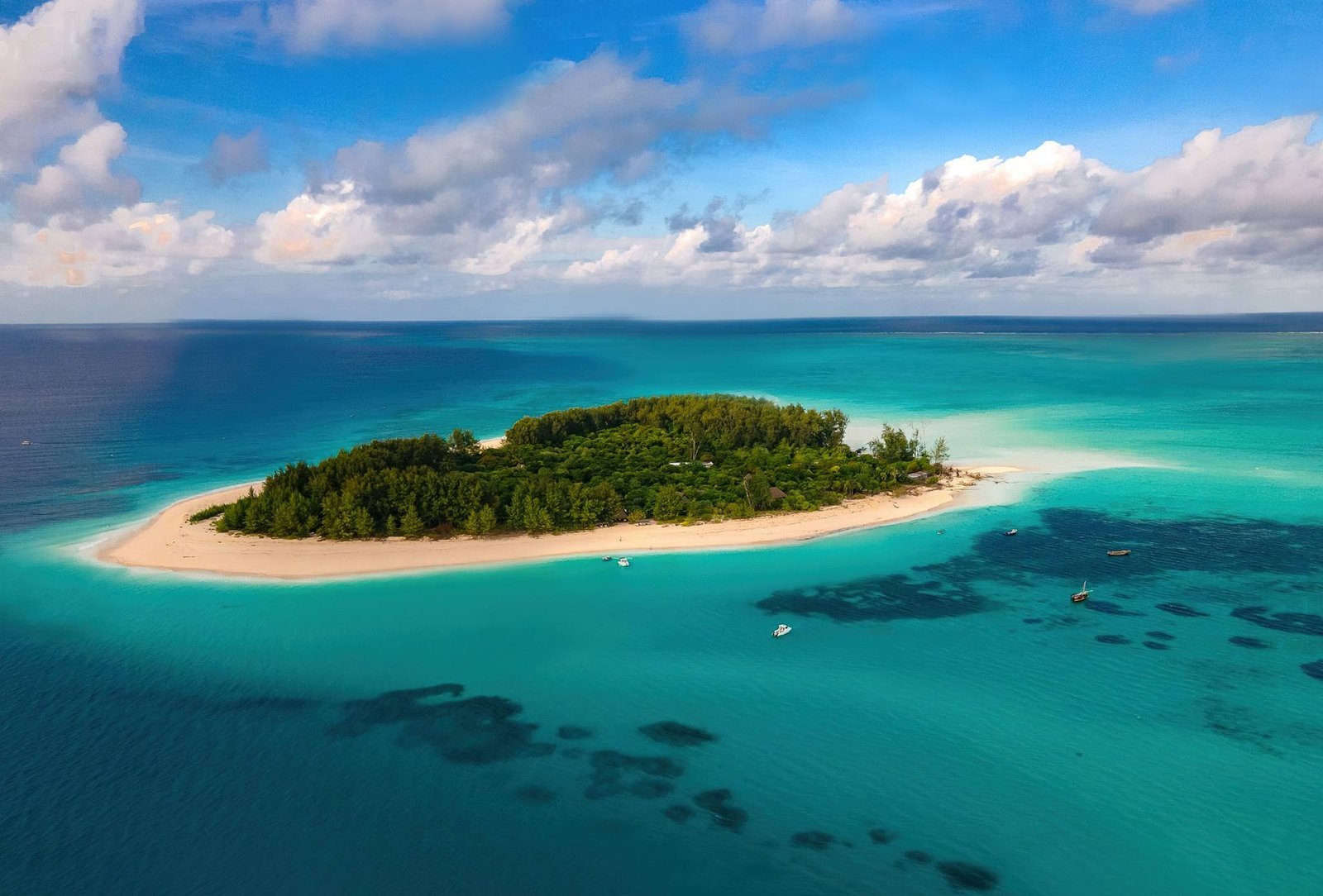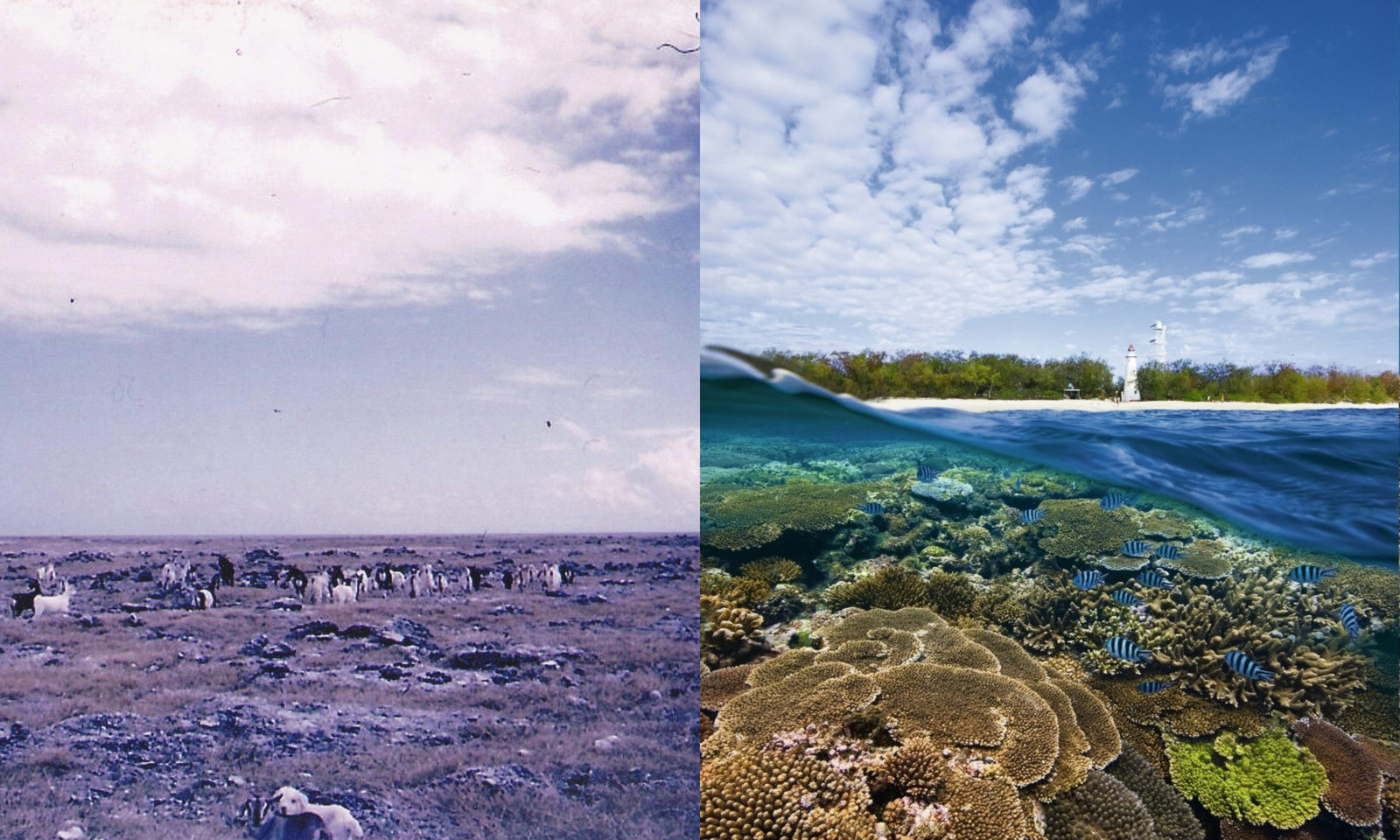Mnemba Island’s coral reef revival success
Three years ago, the vibrant coral reef of Mnemba Island was on the brink of collapse. But now, it’s a rejuvenated coral reef, showcasing a remarkable example of community-driven environmental stewardship.

Image by Tanzania Tourism
Just three years ago, the once-vibrant coral reef encircling Mnemba Island, part of Tanzania’s Zanzibar archipelago, was on the brink of collapse. Climate change, overfishing, and unregulated tourism had severely stressed the reef, threatening the livelihoods of local communities and prompting fears of mass relocation.
Determined to preserve their natural heritage, islanders embraced a pioneering conservation project launched in September 2021 by the sustainable tourism group &BEYOND and the non-profit organisation Africa Foundation. This collaborative effort has successfully rejuvenated the coral reef, showcasing a remarkable example of community-driven environmental stewardship.
The reef’s decline was driven by several factors. Rising sea temperatures due to climate change caused the coral to expel the symbiotic algae that provide essential nutrients, resulting in widespread bleaching and coral death. Destructive fishing practices, such as dynamite fishing, compounded the damage, while the influx of tourist boats and divers further stressed the fragile ecosystem.
Mnemba Island fishmonger Juma Mshindan observed a stark decline in fish populations, a direct consequence of the deteriorating reef. “There is a significant difference in the availability of fish before compared to now. In the past, fish were plentiful,” he noted, highlighting the urgent need for intervention.
To combat these challenges, the conservation initiative established underwater nurseries using steel-mesh tables where coral fragments could grow before being transplanted onto the reef. Local divers, trained as conservation rangers, nurtured these coral fragments, fostering new colonies over two to three months. The results have been extraordinary, with 80% of the “house reef” surrounding Mnemba Island now restored.
Conservation ranger Hija Uledi expressed amazement at the reef’s recovery. “It’s like they have grown by themselves. We have restored the reef, and you can’t tell the difference. Now they have fish around. The work is great, and many species can be seen,” he said.
Additionally, artificial reefs made from steel and stone were placed about 3 km off the island, where newly grown coral was also transplanted. These structures not only supported marine life regeneration but also attracted snorkellers and divers, creating a sustainable tourism attraction.
The success of the project owes much to the involvement and support of the local community. Dr. Camilla Floros, principal scientist with Africa Foundation’s Oceans Without Borders programme, emphasized the importance of community collaboration. “Whenever we have a new initiative, we discuss it with them, and we get their buy-in,” she said.
Local resident Atuya Omar, who joined the project as a conservation ranger, shared her experience. “Being a ranger in this project at Mnemba Island not only enables me to provide food for my family but also supports my son’s education,” she explained. Despite facing conservative attitudes towards her role, Ms. Omar found the challenges worthwhile, underscoring the project’s positive social impact.
In 2022, the Zanzibar government designated the seas around Mnemba Island as a protected area, a critical step in limiting tourism and fishing pressures. Bakari Jaha, coordinator of Africa Foundation Zanzibar, highlighted the reduction in tourist traffic. “Initially, the area faced significant pressure from tourism, with 200 boats carrying at least 400 guests entering an area of only 200 square meters. To preserve the area, the government, along with &Beyond and the Africa Foundation, decided to limit the number of visitors to 80.”
The fee for visiting the reef was increased from $3 to $25, balancing environmental preservation with revenue generation. Fishing around the house reef was suspended, leading to a decrease in illegal practices and an increase in sustainable fishing knowledge among local fishermen.
Inspired by the Mnemba project’s success, the Zanzibar government plans to expand the restoration efforts to other threatened areas. Dr. Makame Omar Makame, director of the Zanzibar Marine Authority, announced, “The government has identified 14 areas with undamaged reefs and others with damaged corals, and we are planning to preserve them.”
The pressures on Zanzibar’s reefs mirror global threats to coral ecosystems. While climate change continues to pose a significant challenge, the Mnemba project demonstrates that local action can yield significant positive outcomes. “The relationship between the sea and coral is crucial for ocean health. We’ve witnessed corals regenerating, even at significant depths,” Mr. Jaha remarked, expressing hope that similar efforts could be replicated worldwide.
By leveraging community involvement, sustainable practices, and scientific expertise, the Mnemba Island coral reef conservation project serves as a beacon of hope for coral reefs globally, illustrating that concerted efforts can restore and protect these vital marine ecosystems.
Parts of this article have been refined for better reading experiences with AI.
Similar articles that you may like:
Born Free Foundation releases two leopards held in illegal captivity into a forever home – Read Here
Oceanswell completes Cetacean diversity study in the Indian Ocean – Read Here
Critically endangered shark and eel species found in British seas – Read Here
The Ocean Cleanup deploys System 03 for the first time in 2024 – Read Here



